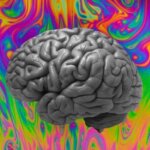Contrary to prior beliefs, new research in the Journal of Neuroscience showed that people with eating disorders do not lose self-control in response to stressors.
The study was conducted at the University of Cambridge.
Researchers recruited 85 women, most of which were diagnosed with anorexia nervosa and the rest with bulimia nervosa. 30 served as part of a healthy control group.
According to the findings: “The theory suggests that these women should have eaten more when they were stressed, but that’s actually not what we found. Clearly, when we’re thinking about eating behaviour in these disorders, we need to take a more nuanced approach.”
“The team found that even when they were not stressed, those women with bulimia nervosa performed worse on the main task, where they had to stop the rising bar as it reached the middle bar – but this was not the case for those women affected by anorexia nervosa.”
“This impairment occurred alongside increased activity in a region in the prefrontal cortex, which the team say could mean these particular women were unable to recruit some other regions required by the brain to perform the task optimally,” researchers concluded in a press release.


